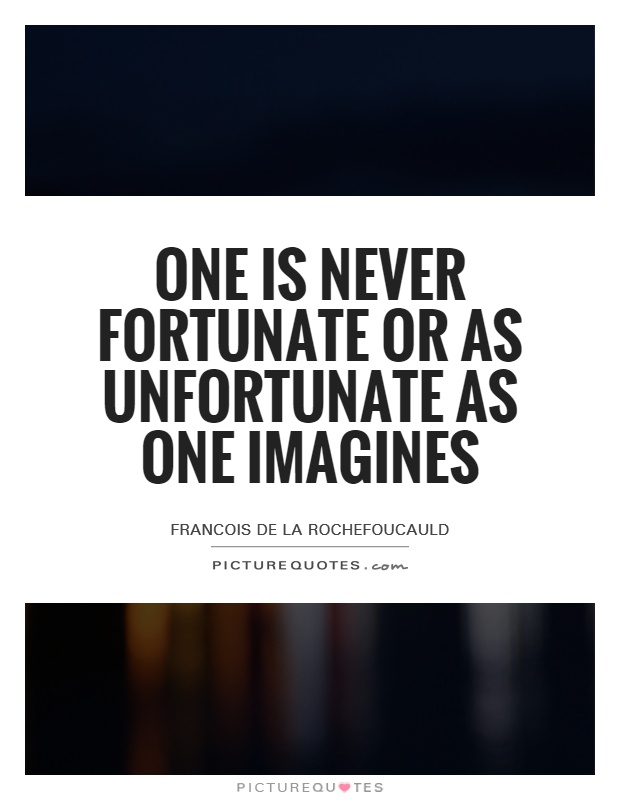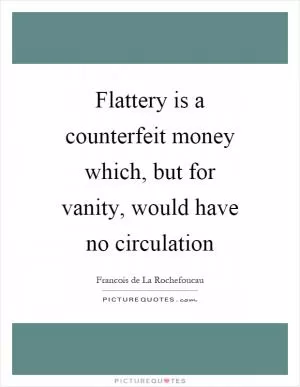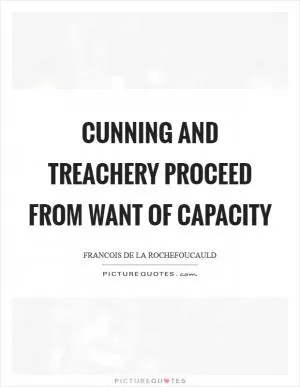One is never fortunate or as unfortunate as one imagines

One is never fortunate or as unfortunate as one imagines
Francois de La Rochefoucauld, a French author and moralist, is known for his collection of maxims and reflections on human nature. One of his most famous quotes is, "One is never fortunate or as unfortunate as one imagines." This statement encapsulates the idea that our perception of our own luck or misfortune is often exaggerated and distorted by our own biases and emotions.La Rochefoucauld believed that human beings are inherently prone to self-deception and self-aggrandizement. We tend to magnify our successes and downplay our failures, leading us to believe that we are either incredibly lucky or incredibly unlucky. In reality, our experiences are often more nuanced and complex than we realize.
For example, someone who wins the lottery may feel incredibly fortunate and believe that they are destined for a life of wealth and success. However, they may not consider the potential downsides of sudden wealth, such as increased scrutiny from family and friends, or the pressure to maintain their newfound lifestyle. On the other hand, someone who loses their job may feel incredibly unlucky and believe that they are doomed to a life of poverty and struggle. However, they may not consider the potential opportunities for growth and self-discovery that can come from adversity.
La Rochefoucauld's maxim reminds us that our perception of our own luck or misfortune is often skewed by our own biases and emotions. We tend to focus on the extremes of our experiences, rather than the nuances and complexities that make up our lives. By recognizing this tendency, we can strive to cultivate a more balanced and realistic view of our own circumstances.












 Friendship Quotes
Friendship Quotes Love Quotes
Love Quotes Life Quotes
Life Quotes Funny Quotes
Funny Quotes Motivational Quotes
Motivational Quotes Inspirational Quotes
Inspirational Quotes